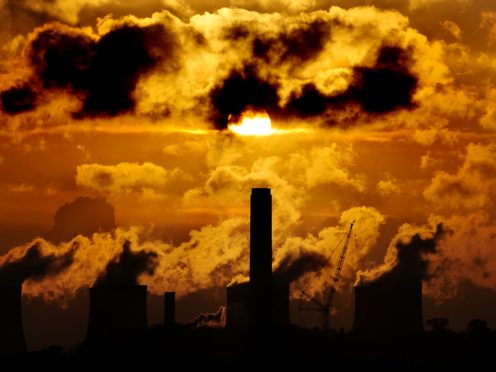
More than 11,000 scientists around the world have declared a climate emergency, warning of “untold suffering” without urgent action.
The declaration is based on analysis of more than 40 years of publicly available data covering a range of measures from energy use to deforestation and carbon emissions.
Scientists from the University of Sydney, Australia, Oregon State University and Tufts University in the US and the University of Cape Town in South Africa are joined in the warning by 11,000 signatories from 153 countries including the UK.
In a paper published in the journal Bioscience, the researchers set out indicators showing the impacts of humans on the climate.
The paper describes “profoundly troubling” signs from activities including sustained increases in human populations, the amount of meat consumed per person, the number of air passengers carried and global tree cover loss, as well as carbon emissions and fossil fuel consumption.
The scientists warn that despite 40 years of global climate negotiations, people have largely failed to address the problem of global warming.
Now “the climate crisis has arrived and is accelerating faster than most scientists expected”, they say.
But there is hope, the researchers say, setting out six areas where governments, businesses and the rest of humanity can take action to lessen the worst effects of climate change.
These are:
– Replacing fossil fuels with low-carbon renewables and other cleaner sources of energy, alongside implementing massive energy-saving practices;
– Prompt action to reduce short-lived climate pollutants such as methane, soot and hydrofluorocarbons (HFCs);
– Protect and restore natural systems, such as forests, grasslands, wetlands, peatlands, mangroves and seagrasses which store carbon;
– Eating mostly plant-based foods, and reducing animal products will improve human health, cut emissions such as methane and free up land to restore habitats, while there is also a need to protect soil carbon through agricultural practices, and to cut food waste;
– Over-exploitation of resources driven by economic growth needs to be curtailed, with a shift from targeting GDP to sustaining ecosystems and improving wellbeing by prioritising basic needs and reducing inequality;
– There is a need to stabilise, and “ideally gradually reduce”, the world population, through policies such as making family-planning services available to all people and making primary and secondary education a global norm for all especially girls and young women.
Dr Thomas Newsome, at the University of Sydney, said: “Scientists have a moral obligation to warn humanity of any great threat.
“From the data we have, it is clear we are facing a climate emergency.”
Dr Newsome said that measuring global surface temperatures as a marker of climate change will remain important.
But a “broader set of indicators should be monitored, including human population growth, meat consumption, tree-cover loss, energy consumption, fossil-fuel subsidies and annual economic losses to extreme weather events”.
They could be used for the public, policymakers and businesses to track progress over time.
He added: “While things are bad, all is not hopeless. We can take steps to address the climate emergency.”

Enjoy the convenience of having The Sunday Post delivered as a digital ePaper straight to your smartphone, tablet or computer.
Subscribe for only £5.49 a month and enjoy all the benefits of the printed paper as a digital replica.
Subscribe